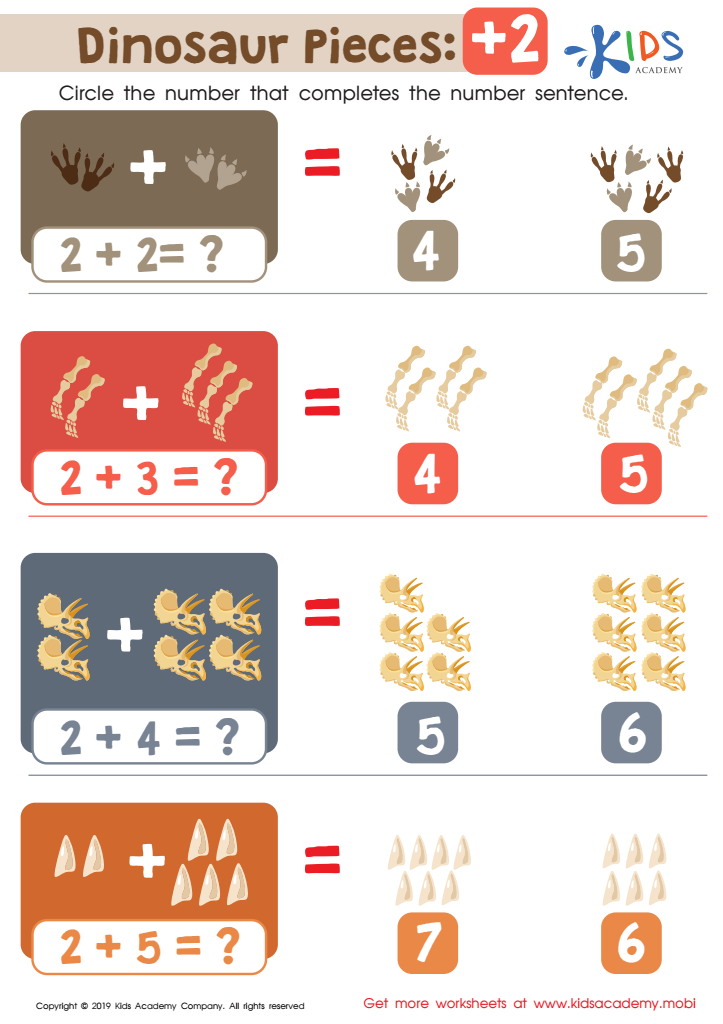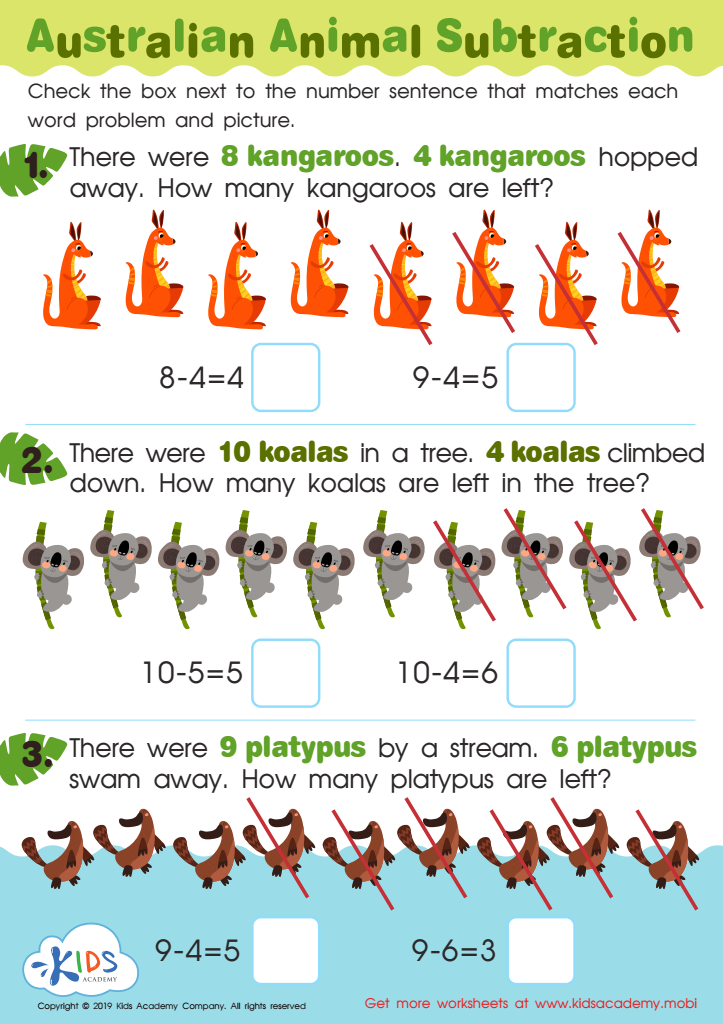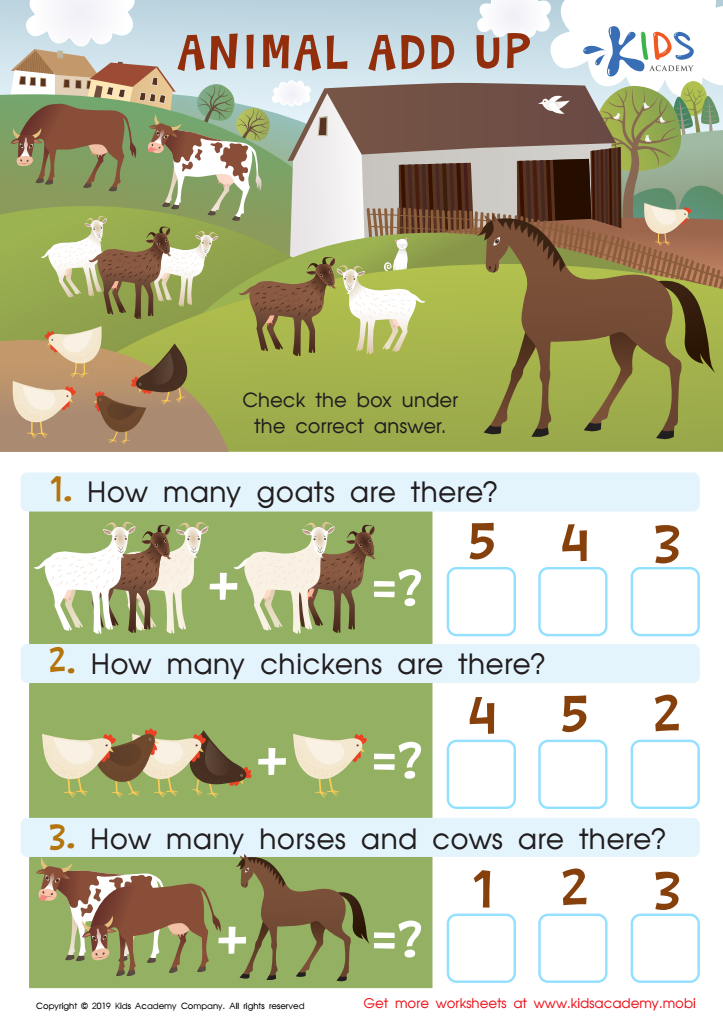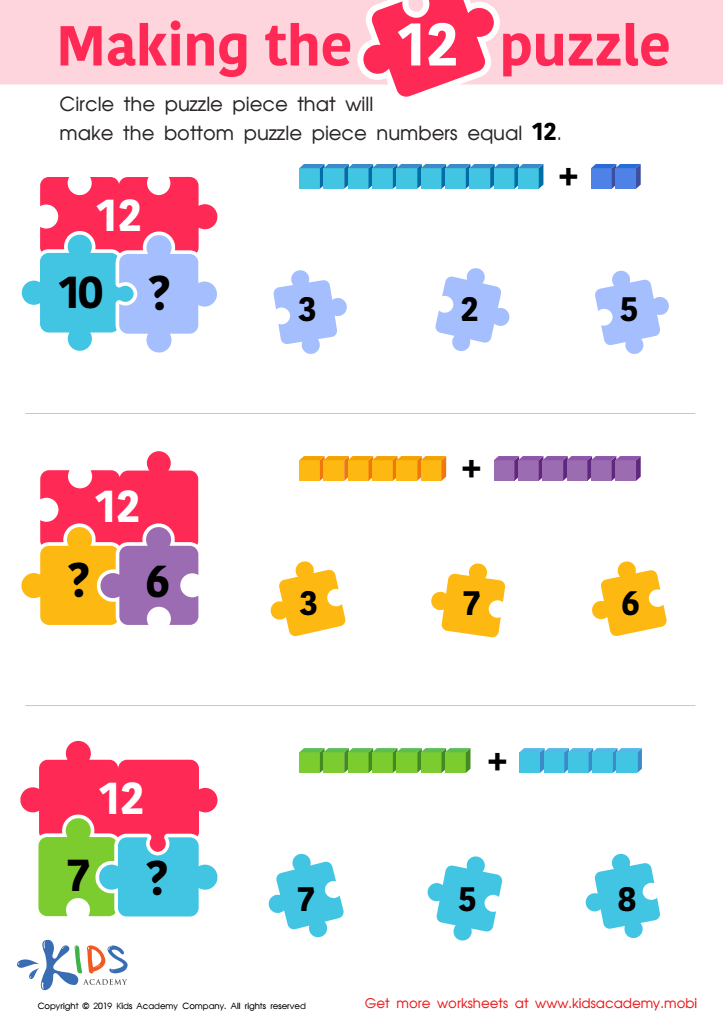Cognitive Development Easy Addition & Subtraction Worksheets for Ages 3-9
4 filtered results
-
From - To
Welcome to our "Cognitive Development Easy Addition & Subtraction Worksheets" for children ages 3-9! These engaging worksheets are designed to enhance young learners' math skills while fostering cognitive development. With colorful illustrations and interactive exercises, children will enjoy mastering key concepts of addition and subtraction at their own pace. Each worksheet focuses on age-appropriate challenges that encourage problem-solving, critical thinking, and number recognition. Perfect for home or classroom use, these resources are a great way to make learning fun and effective. Empower your child’s math journey and watch them thrive with our thoughtfully crafted worksheets today!


Dinosaur Pieces: +2 Worksheet


Australian Animal Subtraction Worksheet


Animal Add Up Worksheet


Making the 12 Puzzle Worksheet
Parental and teacher involvement in the cognitive development of easy addition and subtraction skills for children aged 3-9 is crucial for several reasons. First, these foundational math skills are essential for academic success and provide the building blocks for more complex mathematical concepts introduced in later grades. By fostering early arithmetic skills, caregivers help instill confidence and enthusiasm for learning, reducing potential future anxiety surrounding mathematics.
Moreover, understanding basic addition and subtraction supports critical thinking and problem-solving abilities. Early exposure to these concepts allows children to grasp not only numeracy but also logical thinking and reasoning, crucial life skills. Engaging in playful activities that involve simple math can create a positive learning environment, facilitating discussions about numbers in real-life contexts, enhancing both language development and comprehension.
Finally, developing cognitive skills in early childhood paves the way for better social and emotional development. Children who develop competence in math often feel a sense of achievement and connect positively with peers, participating confidently in collaborative activities. Overall, caregivers play an important role in harnessing children's potential, ensuring they are well-prepared for future academic challenges and promoting a lifelong love for learning.
 Assign to My Students
Assign to My Students




















